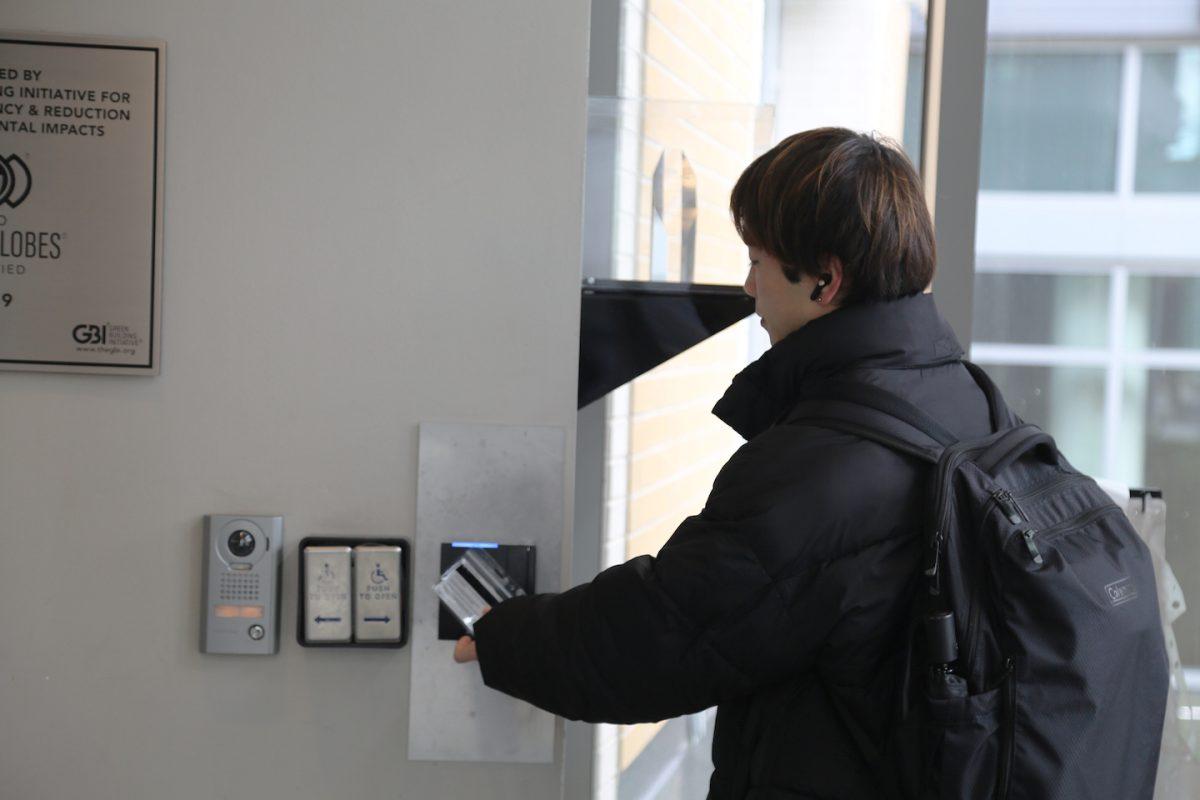St. Joe’s faculty and staff were notified Nov. 9 that an unmarked set of keys to the University City campus was stolen in Collingswood, New Jersey, and that the entire campus would need to be re-keyed.
“Out of an abundance of caution, we are now in the process of re-keying the entire University City campus. This will be a thorough process to ensure the safety and security of our University City students, staff and facilities,” said an announcement to faculty and staff from Tim McGuriman, associate vice president of administrative services. “Currently, the locks of all interior doors in the Living and Learning Commons (LLC) are being changed. These keys are strictly for backup purposes only in the event card readers fail — no new keys will need to be distributed to residents.”
Ken Ogawa, executive director of Facilities Management, confirmed the keys were stolen in an auto theft.
“A person had these keys in their possession, and it was in their car, and their car was broken into,” Ogawa said. “We do not believe someone intentionally broke into their car to try and steal the keys, but because it was part of this malicious criminal action, we’re making — out of an abundance of caution — these changes.”
Ogawa said this re-keying will not affect the building access of students, faculty and staff.
“Generally speaking, we do not issue keys to anyone except Public Safety and a few selected individuals to buildings and spaces that have electronic locks. If there’s a swipe lock, you should not have a key to open that door. You should instead have the electronic permission to open that swipe,” Ogawa said. “The key is only there for emergency purposes if the electronic lock is not working.”
The initial announcement to faculty and staff said the re-keying process would take approximately three to four months. Ogawa said the focus is on high priority and high-risk areas first, having changed all exterior and interior doors in the LLC residence hall.
“What we have to do now is go door by door, building by building, and assess what key was there, what core was there, [figure out if it] was impacted because of the theft, prioritize it [and] then figure out what we need to do in order to fix them,” Ogawa said. “So we’re doing that process right now. We’re working our way through the buildings.”
Owen O’Reilly ’24, an RA in the LLC, said RAs weren’t given additional details about the lock changes, and that he only knew the locks were changed from speaking to one of the locksmiths who was changing the locks in the LLC.
“The only reason I knew it happened was because I was in the dorm, and I heard my door rattle a little bit and the locksmith was going down the hallway,” O’Reilly said. “He confirmed he’s doing every single lock in the building, changing them all out.”
Ogawa confirmed if someone wanted to get into a building with the stolen keys, they are not able to do that anymore.
“Right now, the only way a person can get into the building is with a card swipe, or selected groups like Public Safety have the exterior door keys should electronic locks not work,” Ogawa said.
When asked how much the re-keying process cost the university, Kevin Gfeller, assistant director of public relations, said he did not know.
“Since this is a complex situation with many moving parts, it is hard to estimate the total cost,” Gfeller said. “However, the university is working closely with those involved to resolve the situation.”














































